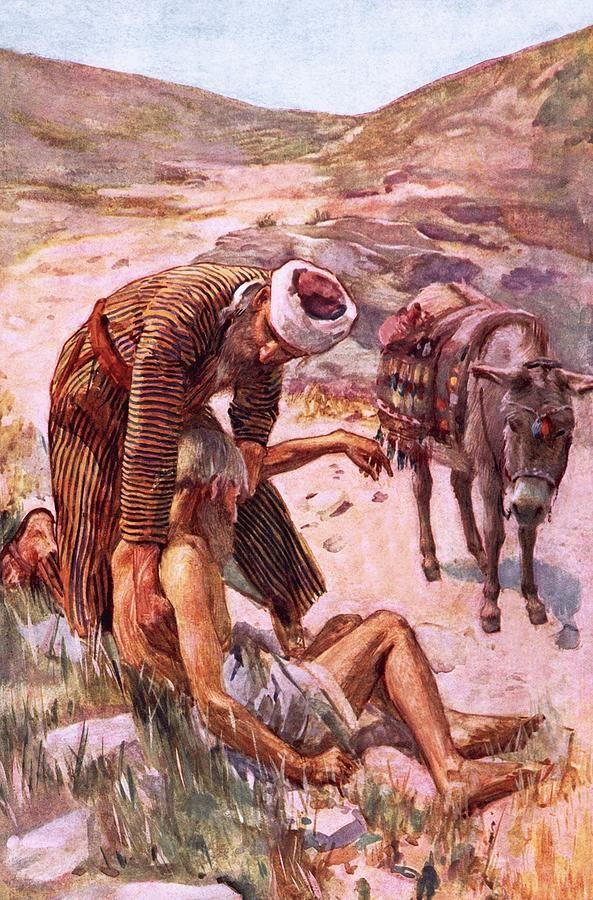Take the Lowest Seat
Luke 14:7–14
And He spoke a parable to those who were invited when He observed how they chose out the first places to recline, saying to them, When thou art invited by anyone to a wedding, do not recline in the first places to recline, lest someone more honorable than thou be invited by him, and he who called thee and him, coming, shall say to thee, Give this man a place; and then thou begin with shame to have the last place.
But when thou art invited, go recline in the last place, that when he who invited thee comes, he may say to thee, Friend, go up higher. Then shalt thou have glory before those who sit with thee.
For everyone who exalts himself shall be humbled, and he who humbles himself shall be exalted.
And He said also to him who invited Him, When thou makest a dinner or a supper, do not call thy friends, nor thy brothers, nor thy kinsfolk, nor rich neighbors, lest they also invite thee back, and a recompense be made thee.
But when thou makest a reception, call the poor, the maimed, the lame, the blind; and thou shalt be happy, for they cannot recompense thee; for thou shalt be recompensed at the resurrection of the just.
Charity without remuneration
NJHD 104. Charity therefore is an internal affection, from which man wills to do good, and this without remuneration; the delight of his life consists in doing it. With those who do good from internal affection, there is charity in each thing which they think and speak, and which they will and do. It may be said that a man and an angel, as to his interiors, is charity, when good is his neighbor. So widely does charity extend itself.
AC 6393:3–4. That they have heaven who do what is good without the end of reward, the Lord teaches in Luke [in the parables above]. The “recompense in the resurrection of the just” is internal happiness from doing well without reward, which they receive from the Lord when they perform uses. And those who love to serve without recompense, the more they love it, the more noble are the uses to which they are appointed; and they are in fact greater and more powerful than others.
Those who do good works for the sake of recompense say the same things, because they know from the Word that they should desire to be the least in heaven. But at the time they are thinking that by so saying they will become great; thus there is the same end in view. But those who do what is good without recompense really think nothing about being eminent, but only about being of service.
Making a dinner or supper
AE 695:6. “To make a dinner and a supper and to call [people] to them” has a similar signification as giving to eat and drink, or bread and wine, namely, doing good to the neighbor, and teaching truth, and being thus consociated in love. Those who do this for the purpose of being recompensed do it not for the sake of good and truth, thus not from the Lord, but for the sake of self and the world, thus from hell. On the other hand, those who do this not for the purpose of being recompensed, do it for its own sake, that is, for the sake of good and truth, and those who do it for the sake of good and truth do it from good and truth, thus from the Lord, from whom are good and truth with man. The heavenly blessedness that is in such deeds and thence from them is the “reward,” and it is meant by “it shall be recompensed to thee in the resurrection of the dead.”
The poor, the maimed, the lame, the blind
AC 4302:5. The Ancient Church distinguished into classes the neighbor or neighbors toward whom they were to perform the works of charity. And they called some “maimed,” some “lame,” some “blind,” and some “deaf,” meaning those who were spiritually so. Some also they called the “hungry,” the “thirsty,” “sojourners,” the “naked,” the “sick,” the “captives” (Matt. 25:33–36); and some “widows,” “orphans,” the “needy,” the “poor,” and the “miserable.” By them they meant no others than those who were such as to truth and good, and who were to be suitably instructed, led on their way, and thus provided for as to their souls.
But as at this day charity does not make the church, but faith, what is meant in the Word by these people is altogether unknown. And yet it is manifest to everyone that it is not meant that the maimed, the lame, and the blind are to be called to a feast, and that it was not commanded by the master of the house that such should be brought in, but that those are meant who are spiritually such; also that in everything spoken by the Lord there is what is Divine, consequently a celestial and spiritual sense.
Questions and Comments
- NJHD 104 describes the delight that comes from doing good. How does this passage compare to your experience?
- AC 6393:3–4 describes a sort of false humility. How can this passage help us be more genuinely charitable?
- How can we invite the poor, the maimed, the lame and the blind to dinner spiritually?
| previous |  |
next |
|---|


